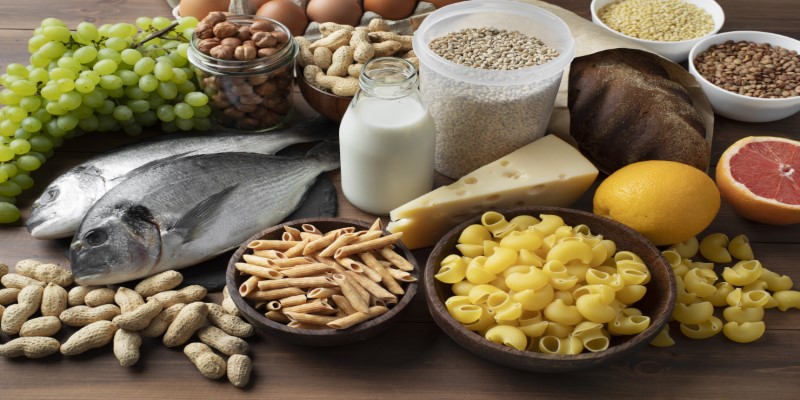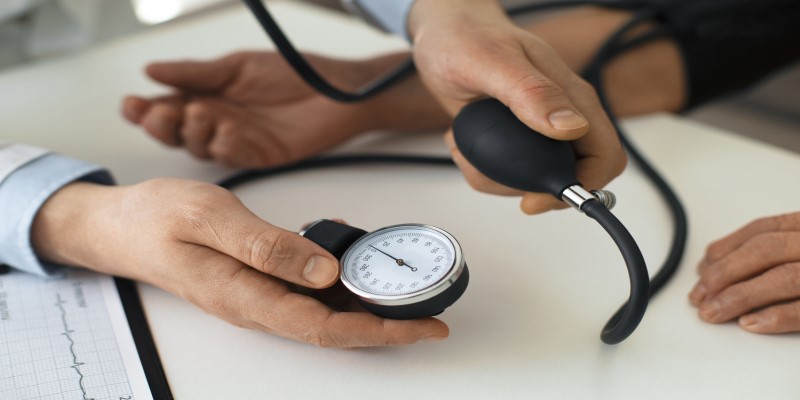Hypertension, more commonly known as high blood pressure, is a major health concern that affects millions worldwide. Often dubbed the silent killer because it rarely shows symptoms, hypertension gradually wears down the body, leading to severe health issues like heart disease, stroke, and kidney damage. Its not just a condition limited to aging individuals or those with a family history of high blood pressure.
Lifestyle factors play a significant role, with obesity being one of the key contributors. But how exactly does being overweight or obese influence your blood pressure? This article takes a closer look at the link between obesity and hypertension and explains the mechanisms behind it.
Hypertension is when the force of the blood against the walls of your arteries is consistently too high. Blood pressure is measured in millimeters of mercury (mmHg) and consists of two numbers: systolic pressure (the top number) and diastolic pressure (the bottom number). Systolic pressure measures the force when the heart beats, while diastolic pressure measures it when the heart rests between beats. A normal reading is typically around 120/80 mmHg, but when the reading consistently goes above 130/80 mmHg, its classified as hypertension.
Hypertension can be categorized into primary (essential) and secondary hypertension. Primary hypertension develops gradually over many years and doesnt have a single identifiable cause. In contrast, secondary hypertension is triggered by an underlying condition, such as kidney disease, hormonal disorders, or certain medications. Regardless of the type, untreated hypertension can lead to life-threatening complications.
When your blood pressure remains elevated, it strains your heart and blood vessels. Over time, this extra pressure damages your artery walls, leading to the buildup of fatty deposits (atherosclerosis), narrowing arteries and reducing blood flow. The heart must work harder to pump blood, which can lead to heart enlargement and, ultimately, heart failure. Hypertension also damages small blood vessels in vital organs like the kidneys and eyes, leading to kidney disease and vision problems.

Moreover, the brain is not spared from the harmful effects of high blood pressure. The continuous strain on blood vessels increases the risk of strokes and cognitive decline. Despite these severe consequences, many people with hypertension are unaware of their condition because it typically has no symptoms until it reaches an advanced stage.
Insulin resistance is more common in obese individuals and plays a significant role in the development of hypertension. When the body becomes resistant to insulin, it struggles to regulate blood sugar levels, leading to higher levels of circulating insulin. High insulin levels can cause the kidneys to retain sodium and water, increasing blood volume and, consequently, raising blood pressure.
The kidneys play a vital role in regulating blood pressure by controlling the balance of salt and water in the body. In obese individuals, excess fat tissue around the kidneys can physically compress them, impairing their ability to function properly. This leads to sodium retention and higher blood volume, directly contributing to elevated blood pressure. Additionally, the increased workload on the kidneys can lead to long-term damage and chronic kidney disease, which further exacerbates hypertension.
The sympathetic nervous system controls the bodys fight or flight response and regulates heart rate, blood vessel constriction, and other vital functions. In obese individuals, this system is often overactive, leading to persistently high levels of stress hormones like adrenaline. This constant stimulation keeps blood vessels constricted, causing increased resistance to blood flow and, therefore, higher blood pressure.
Another factor that links obesity with hypertension is the structural changes in blood vessels due to excess fat. Obesity triggers a low-grade inflammatory response throughout the body, leading to stiffening of the arteries, a condition known as arterial stiffness. Stiff arteries cannot expand easily with each heartbeat, leading to increased pressure inside the arteries. Over time, this condition worsens hypertension and sets the stage for cardiovascular complications.
Not all fat is created equal. Visceral fat, which surrounds the internal organs, is particularly harmful when it comes to blood pressure. This type of fat is metabolically active and produces hormones and chemicals that promote inflammation and insulin resistance, both of which contribute to higher blood pressure. Studies show that even if your overall BMI is within a healthy range, carrying excess visceral fat can still significantly increase your risk of hypertension.
Managing both obesity and hypertension involves lifestyle changes that target diet, physical activity, and stress management. A balanced diet low in processed foods, rich in fruits, vegetables, lean proteins, and whole grains can help control weight and reduce blood pressure. The DASH (Dietary Approaches to Stop Hypertension) diet, specifically designed for blood pressure management, emphasizes these principles.

Regular physical activity is equally important. Incorporating at least 150 minutes of moderate exercise per week can not only help with weight loss but also directly lower blood pressure by improving heart health and promoting better blood flow. Strength training, combined with aerobic exercises like walking, cycling, or swimming, is effective in reducing both obesity and hypertension.
Stress management techniques, such as mindfulness, meditation, and deep breathing exercises, can also help regulate blood pressure by calming the sympathetic nervous system. Since both obesity and hypertension can create a vicious cycle of stress and poor health, finding ways to break that cycle is crucial.
Hypertension is a serious but manageable condition, and understanding how obesity contributes to high blood pressure is the first step toward taking control of your health. The relationship between obesity and hypertension is multifaceted, involving insulin resistance, kidney function, and the nervous system.
However, the positive side is that weight loss and healthier lifestyle choices can significantly reduce your risk of developing high blood pressure and its associated complications. Whether its through dietary changes, regular exercise, or stress reduction, taking proactive steps can help you maintain a healthy weight and keep your blood pressure in check, ensuring better long-term health and well-being.

By Alison Perry/Sep 01, 2024

By Noa Ensign/Sep 01, 2024

By Celia Shatzman/Sep 02, 2024

By Georgia Vincent/Sep 03, 2024

By Celia Shatzman/Sep 01, 2024

By Paula Miller/Sep 02, 2024

By Darnell Malan/Aug 26, 2024

By Mason Garvey/Sep 02, 2024

By Martina Wlison/Sep 01, 2024

By Isabella Moss/Sep 02, 2024

By Vicky Louisa/Aug 31, 2024

By Celia Kreitner/Sep 02, 2024